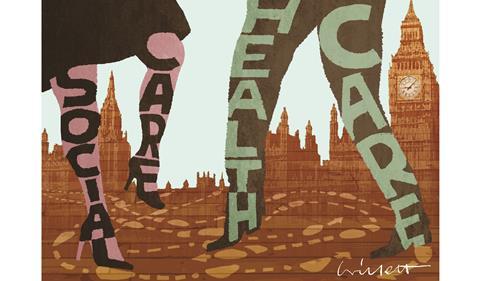To secure sustainable health and social care systems national decisions about funding and access must be made, writes Joanna Killian

To say ageing issues are at the top of our agenda in Essex would be an understatement.
We are already a “super aged” county, where one in five residents is over 65. England as a whole won’t hit that figure for at least another decade. Essex had 44 per cent more residents aged over 90 in the 2011 census than in 2001. We forecast that the number of residents needing care and support by 2030 will be four times as many as today.
‘We are making good and steady progress locally, but some barriers are huge and beyond our control’
The county is not alone in facing this care challenge. Nationally, NHS England predicts a £30bn gap between resources and demand in health alone by 2021. The social care gap is estimated to be £7bn by 2020.
We are working hard with our health partners to look at how we can work more closely together and integrate health and social care. We have a complex environment, with five clinical commissioning groups, five acute trusts and two mental health trusts to work with - it’s not easy.
We are making steady progress locally, but some barriers are so huge and beyond our control that we need a national policy change.
- Welbourn: Accountable care organisations can properly manage commissioning risks
- Integrated care is the public sector’s greatest challenge
Means to an end
It is needed not just to make integration easier - after all, integration is just a means to an end - but also to lock in a sustainable health and social care system for the future.
That is why we have just published A Shock to the System: Saving Our Health and Social Care. It sets out five actions we believe the next government must take to put health and social care onto a sustainable footing and to aid the process of integration:
- Allocate 10 year, place based funding settlements to local areas for health, social care and public health. In Essex, this would be worth £3.5bn a year.
- Empower local health and wellbeing boards to hold the place based budget for an area, set strategic priorities and direct the commissioning of health and social care. This would require changes to the funding and accountability arrangements of HWBs to give them teeth. A health and care commissioner (possibly elected) would be the board chair and would drive integration and improve health and social care outcomes in a local area. It would simplify arrangements in local areas.
- The NHS tariff system needs to be reformed to incentivise prevention and align financial incentives for providers with outcomes for individuals.
- The laws around data protection need modernising and clarifying. A legal presumption to share data, with safeguards, could build confidence. The Law Commission recently proposed there should be a full law reform to create a clear, principled legal structure for data sharing. It argues that it should include work to map, modernise, simplify and clarify the statutory provisions that permit and control data sharing and review the common law. This seems a sensible way forward.
- We need a sensible national conversation about what a universal service offer should look like, how eligibility for health and social care services could be more aligned, and how it could all be paid for. The King’s Fund’s recent commission raises some interesting and workable ideas, but it is important that the government leads the debate and engages the public in an honest way to build understanding and consensus.
Essex believes that the implementation of these five measures can help put health and social care onto a sustainable footing.
Just the beginning
We know these will not be the only answers.
The NHS and local government need to improve efficiency; the potential of technology needs to be radically explored and promoted in health and social care; and more needs to be done to ensure a steady supply of GPs.
‘Local health and wellbeing boards and councils simply do not have the legal authority to make fundamental changes’
Taking these steps can help the next government make significant strides towards integrating health and social care, and addressing system pressures. They represent a focused programme of action. Local areas cannot tackle the fundamental problems facing the system alone.
The harsh reality is that difficult decisions are required and the most fundamental of these require decisions and policy change by the national government.
Decisions must be made about how the system is funded and how it is accessed. Local HWBs and councils do not have the legal authority to make the changes required.
It’s time to be honest about the structural weaknesses in our health and social care system.
Joanna Killian is chief executive of Essex County Council
This article was originally published by HSJ’s sister title Local Government Chronicle


























No comments yet